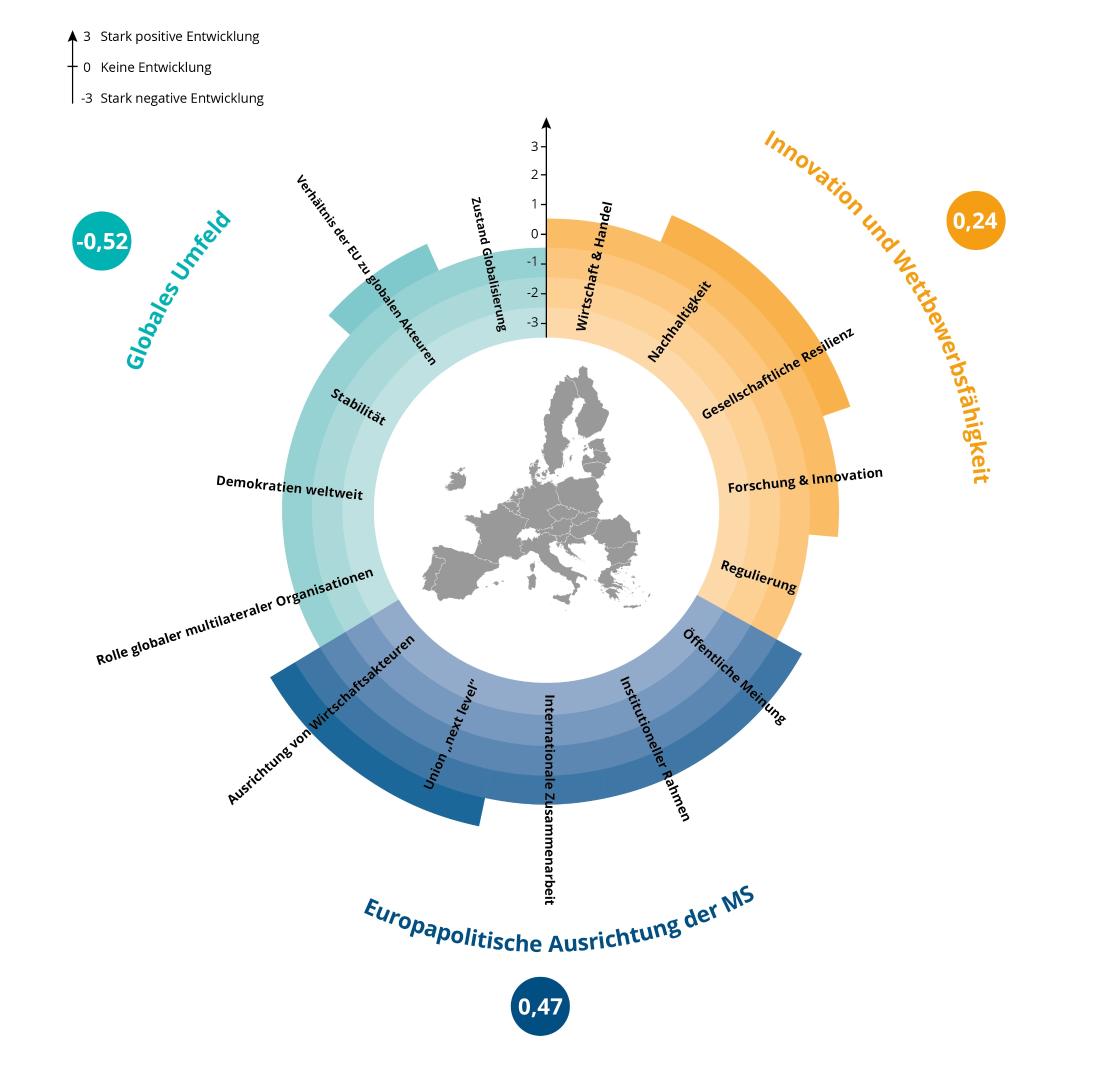The results of the Panorama Analysis 2024, which monitors developments in 2023 compared with 2022, show that the European Union is needed on all fronts, but is becoming increasingly entangled in blockades.
As already shown in last year's Panorama Analysis, the regulatory environment in the EU continued to deteriorate in 2023. In particular, the degree of economic freedom has continued to decline, with interventions in the European Single Market remaining at a high level since the coronavirus pandemic and the energy price shock. Nevertheless, the EU is proving to be socially resilient: inflation has fallen significantly, the unemployment rate is consistently low and income distribution remains stable. Building on this stability, the EU can venture a "real" transformation to overcome its economic stagnation.
There is a positive trend with regard to the attitudes of member states towards the EU. The number of formal infringement proceedings is falling significantly, which strengthens overall legal cohesion. These positive impressions are tempered by a look into the engine room of the EU's domestic and foreign policy decision-making. In order to become a strong global political player, the days of national vetoes against important initiatives must come to an end. The Weimar Triangle should work towards this with determination.
The existing global order is crumbling, while the climate, wars and conflicts and their consequences are presenting the world and Europe with immense and increasingly multi-layered problems of local to global significance. Against this backdrop, the global implementation of important international treaties continues to suffer: the Paris Climate Agreement is making little progress and the goals of the 2030 Agenda will not be implemented by the end of the decade. The EU should respond to these challenges with differentiated and subsidiary approaches according to the formula "Big on big things, small on small things".
Topics
About this series
The series informs in a concentrated form about important positions of the Konrad-Adenauer-Stiftung on current topics. The individual issues present key findings and recommendations, offer brief analyses, explain the Foundation's further plans and name KAS contact persons.




